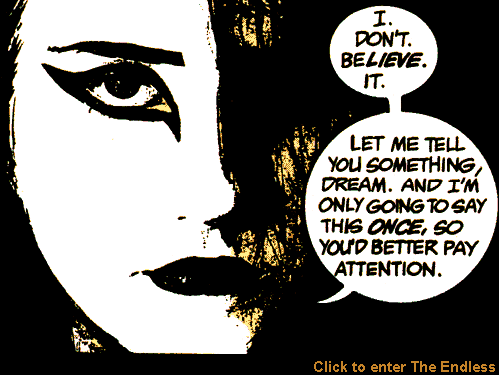 I saw several maps about regional differences in US dialects in a discussion on Google+. The comments focused on the peculiarities of Pittsburghese for a bit ("Counter needs washed, yinz."), and this Shakespeare joke made me laugh out loud.
I saw several maps about regional differences in US dialects in a discussion on Google+. The comments focused on the peculiarities of Pittsburghese for a bit ("Counter needs washed, yinz."), and this Shakespeare joke made me laugh out loud."... or not ..."I had planned to write this article later, but apparently the universe wants it published now. So be it. This tip works for all kinds of writing, but I think I've given this note or changed at least one "to be" in every RPG project I've ever edited.
- Hamlet (Prince of Pittsburgh)
The Best Writing Advice I've Ever Received
 |
| High school was less cool than this. Found at The Endless on oddball.net. |
I gravitated to drama at WPI. I had been on stage in musicals with a community youth theater since age 11, so I had a certain comfort level with acting and singing. And since WPI mandates a project in humanities to promote well-rounded engineers, I started acting again and taking drama classes with Susan Vick.
I wrote a paper reacting to one of the plays we studied. I struggled with it, rewrote it, and it still bored me to tears. I met with Susan about it, and she gave me the best writing advice I've ever received.
"Rewrite this. Go back through, find every instance of the verb 'to be', and change each one to a different verb instead."It sounded like busy work, but I gave it a shot. The paper went from a tortured high school research paper to something readable and almost interesting in about a half hour. I didn't expect so dramatic an effect by using one simple technique. I was hooked.
And here I am 25 years later giving the exact same advice to you.
 |
| Found at Belle Noir. |
No single rule will make you a well-rounded writer, but this one has served me well because it taught me awareness. I had been writing mostly on instinct, focusing on an ethereal "How does this sound?" rather than paying attention to the craft of writing. I still work from my gut, but I'm constantly learning new ways to articulate why a passage doesn't work for me.
When I went through that first paper, looking for "to be" made me pay attention to the verbs I chose and how each one makes the overall piece feel. Once I became aware of my verb choices, I never took them for granted again. Sometimes I'm lazy on a first draft, but it doesn't take long for the editor in my head to start asking some pointed questions about the preponderance of is, was, and were in whatever I write.
As humans, we crave action. When we read we want to feel like we're part of the action, or at least in the front row of spectators so we feel the breeze as the action whizzes by. When we choose "to be" as our main verb we describe existence, not action. Readers will get a sense of stasis instead of feeling the motion we describe. Stasis is boring. Action compels.
 |
| You can hear this voice in your head. |
Let me give you an example.
He was riding the train to work when he was surprised by the intercom, announcing in that pleasantly neutral female voice that his stop was next. His tardiness was a perennial problem.Things happen to the protagonist. He changes his state but never truly reacts. As a reader I spend so much time untangling this sentence that I'm tired after reading it. Imagine a whole book filled with language like this and I double dog dare you not to shudder at the thought. Granted, this sentence has more problems than simple verb choice, but it's early and I'm on the train. I'll dive deeper into passive voice in a different article, but for now know that targeting "to be" for removal will help eliminate passive voice as well.
If we focus on the verbs and juggle things around, we can make this passage do something more than just sit there and barely explain what's happening. We can show action rather than talk about the situation.
The pleasantly neutral female voice emitted from the car's speaker and dragged him back to the grim reality of his uncomfortable train seat. He leapt up to avoid missing his stop. He couldn't afford another black mark for tardiness.Now we see things actually happening rather than following a string of "was"es. The voice emitted. The voice dragged him back. He leapt up. He couldn't afford another black mark. Smart verb choices eliminate the need for many adverbs (another future article) which creates tighter writing overall. Which communicates more effectively to you: "He walked quickly" or "He hustled"?
 |
| D. R. is my favorite pseudo- Shakespeare. Linked from Mind the Oranges, Marlon! |
By choosing active verbs we get a better sense of the world by moving through it. We paint a vivid picture in varied strokes, lines, curves, and twirls rather than a dot on the canvas for each discrete moment of existence. Variation keeps readers hooked on what comes next. Repetition spells boredom, and boredom prevents readers from finishing what you wrote.
Expect Exceptions
I hope you find this technique useful, but don't expect to eliminate every instance of "to be". You don't need to catch them all. If this tip becomes the only tool in your writing toolbox, you'll spend all your time fighting your draft to avoid using "was" when you could spend it improving your content. It's not worth the effort when you settle on something that's far too convoluted to read. You'll end up rewriting it anyway when your editor calls you on it.
There will always be exceptions. Sometimes things simply are, and that's just ducky. Be zealous in your diversity instead of slavish devotion to rules and you'll be fine.
Now get out there, consciously choose effective verbs, and draw your readers in.

No comments:
Post a Comment